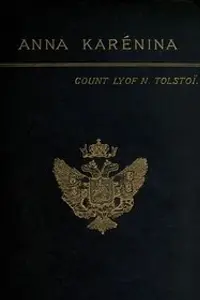Summary
Anna Karenina is a sweeping, tragic novel by Leo Tolstoy, often considered one of the greatest works of world literature. The story follows Anna, a beautiful and aristocratic woman trapped in a loveless marriage, who embarks on a passionate affair with the dashing Count Vronsky.
As their relationship intensifies, Anna becomes increasingly isolated from society and begins a descent into jealousy, self-doubt, and despair.
Parallel to Anna’s story is the quieter, more philosophical narrative of Konstantin Levin, a landowner wrestling with questions of faith, purpose, and the meaning of happiness.
Levin’s journey toward personal peace serves as a foil to Anna’s tragic arc.
Through its richly drawn characters and themes of love, fidelity, family, class, and morality, Anna Karenina presents a vivid portrait of 19th-century Russian society—and a timeless exploration of the human condition.
